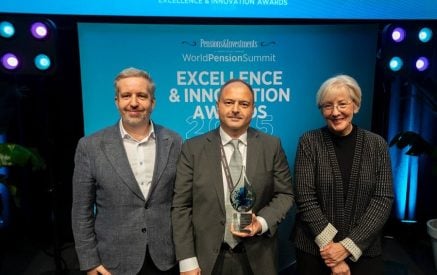The Armenian tech sector has been consistently highlighted as one of the most promising corners of the country and a strategic imperative for Armenia’s future development. Over the last ten years, the industry has seen significant growth and maturation. An ecosystem that was once primarily centered around outsourcing with big local and international players like EPAM, DataArt, Instigate and Volo, has been transformed into a source of innovation, with many Armenian start-ups being recognized globally as leaders in their respective domains.
2021 saw Armenia celebrate its first home-grown unicorn in Picsart when the AI-powered photo editing suite surpassed the milestone after raising its $130 million Series C round from top-tier VCs such as Sequoia and Softbank. Krisp, SoloLearn SuperAnnotate, Activeloop, Cognaize, 10 Web, and Podcastle are also leaders in their fields and have successfully raised Series A and B rounds from top investors such as YCombinator, Sierra Venture, AI Fund, RTP Global, and Argonatic Ventures to name a few.
The country is also home to the offices of many leading global tech firms such as NVIDIA, Synopsys, AMD, Adobe, VMware (by Broadcom), Siemens, Microchip, and Teamviewer. Many of these companies have joined the Armenian ecosystem by acquiring local start-ups for their innovation and talent, which now contribute to products used globally. Over the last few years companies founded by diaspora Armenians have also found a home in the country, most notably trades software giant ServiceTitan, and customer experience platform DISQO.
As well, since 2022, the Armenian ecosystem has welcomed companies such as Yandex, Veam, Quantory, Grid Dynamics, Align Technologies and BostonGene, due to geopolitical changes in the countries they were operating in previously. Many of them have quickly become a part of the top 20 taxpayers from the IT industry.
Read also
This growth is evident in the economic data. The Armenian ICT sector has experienced consistent double-digit growth over the past several years, achieving nearly 30% growth in 2023 and accounting for 8.25% of the GDP in the same year.
The success stories, and the numbers behind them all point to the fact that the high-tech industry has the potential to continue to grow and be competitive globally. The Armenian government has also pointed this out, mentioning several times that the IT sector is of strategic importance to the country due to it being free of limitations such as sea access and cross-border trade that a landlocked country like Armenia may experience. Throughout the years, the government has been active in working to build a favorable environment for the industry by introducing programs such as tax incentives and grants for start-ups.
However, as the industry in Armenia matures, there is a need for an institutional and comprehensive approach to the policies that regulate the industry to ensure that its potential for growth and excellence is realized. Recognizing this need, the Union of Advanced Technology Enterprises (UATE) is taking proactive steps to address it.
Announcing UATE’s Policy Development & Advocacy Department
Since 2000, UATE has been crucial in fostering and developing a favorable environment for local and international tech companies in Armenia. Our business association comprises over 150 companies and organizations, representing more than 60% of the ICT tax base. Throughout our history, we have collaborated closely with stakeholders across the industry, including government, private companies, and civil society members. To continue this work and enhance our advocacy for public policies, we are announcing the formation of a new department within UATE, the Policy Development & Advocacy Department.
This department’s mission is to contribute to the development of the Armenian technological ecosystem by engaging in the formulation of public policies that regulate the high-tech sector. To achieve this, we will work closely with the tech community and the government to identify regulatory issues hindering the sector’s development and develop solutions based on international best practices and local conditions. The department will actively coordinate dialogue between the private and public sectors, aiming to reshape the regulatory framework and foster a prosperous industry.
Why Regulatory Predictability Matters
As a part of our mission to raise issues at the core of the development of the high-tech industry, and maintain a dialogue with stakeholders across society, we will be using this platform to present topics and provide our perspective on why certain issues matter. The first topic we’ve chosen to highlight is at the core of all issues surrounding any regulatory framework – the need for a regulatory environment that is predictable, stable, and competitive. This principle of regulatory predictability is important for a number of key reasons. First, it reduces uncertainty and builds trust and confidence among stakeholders. A clear and stable set of laws that govern the industry which are not subject to constant changes ensures that companies know the requirements of the environment they operate in, which enables them to focus on growth and innovation rather than navigating complex, and often expensive, regulatory hurdles. This in turn allows companies to focus on long-term planning strategy, and make strategic investments in research and development (R&D), as well as talent development. Lastly, regulatory predictability is imperative for attracting foreign investment and firms to your ecosystem. When expanding globally, a company considers factors such as talent and markets, but must also invest in understanding the regulatory environment of the new country. A track record of consistency and stability naturally helps put many concerns to bed, as the environment they’ll be operating in is easier to understand and plan for.
To create a more predictable regulatory environment, Armenia can focus on several key areas for improvement. One such area is taxation. In 2014, the Republic of Armenia adopted a law providing tax incentives, including a 0% corporate tax rate and a 10% flat income tax for start-ups with 30 or fewer employees. Originally set to expire at the end of 2017, this law has been regularly extended, most recently in 2022 and 2023. However, the current law is scheduled to expire at the end of this year, and it remains unclear what will replace it. The uncertainty in the taxation framework poses a significant challenge for global firms considering opening an office in Armenia or continuing their operations in the country. The stability and predictability of tax policies are crucial for attracting and retaining businesses, making it essential for Armenia to implement a long-term, globally competitive taxation policy to foster economic growth. Moreover, it is essential that the state’s taxation policy (including potential tax incentives) is centered around value creation and sustainable development of the overall tech sector (through promotion of R&D, innovation, etc.) rather than simply applying reduced tax rates.
Another relevant issue in building trust and confidence is the laws governing data protection in Armenia. In 2018, the European Union (EU) implemented the General Data Protection Regulation (GDPR), which sets standards for handling the personal data of EU citizens and residents. Due to the importance of the EU market, GDPR has quickly become the global standard for data protection. Although only EU states can formally adopt GDPR, the EU lists countries with “adequate” data protection frameworks aligned with GDPR standards. Armenia’s current data protection laws do not meet these standards and are not recognized as adequate by the EU. Consequently, a large international company wound down its R&D team in Armenia due to data processing restrictions. To continue operations, the company would have faced business challenges like restricting data processing and notifying customers about the new data location, raising GDPR compliance concerns. Armenia needs to enhance its data protection laws to meet GDPR standards and attract international businesses by ensuring EU recognition.
Another issue at hand are the laws governing the public procurement and tender system. We have regularly observed that tenders are announced with requirements that no local Armenian company can meet, such as experience in certain areas or specifications that have not been applicable in Armenia. Without creating an environment in which local tech companies can be competitive in government tenders, we lose out on the opportunity to develop local resources for future needs. This is particularly important for government procurement needs, as it reduces reliance on foreign countries.
Conclusion
Regulatory predictability and stability is an issue that touches all of the topics we have raised, and it is an important principle to keep in mind when thinking about creating an environment in which the high-tech industry can continue to develop. As seen from the examples discussed, simply having human capital and good ideas is not enough if the regulatory framework in which they exist is inadequate. As we continue to mature as an ecosystem, these are the hurdles we need to remove to ensure continued growth. The list of issues expands beyond the listed example, and through our platform we will continue to raise these issues to raise awareness and encourage discussion around the solutions. In the coming weeks and months, UATE will target and represent specific regulatory issues, including matters surrounding customs, laws on blockchain technology, the aerospace tech sector, cybersecurity, artificial intelligence, education, and laws surrounding investment and incorporating companies in the country.



























































